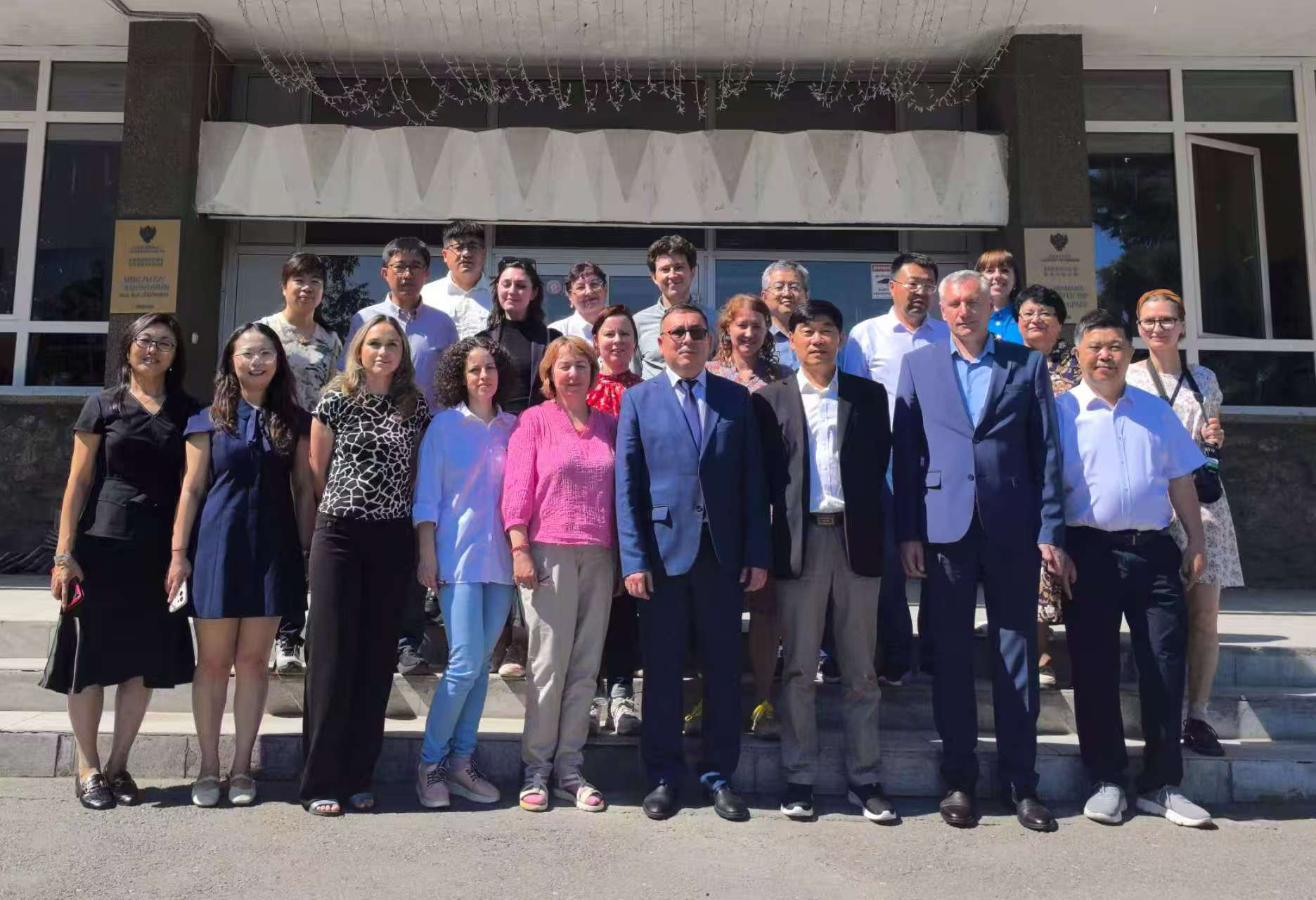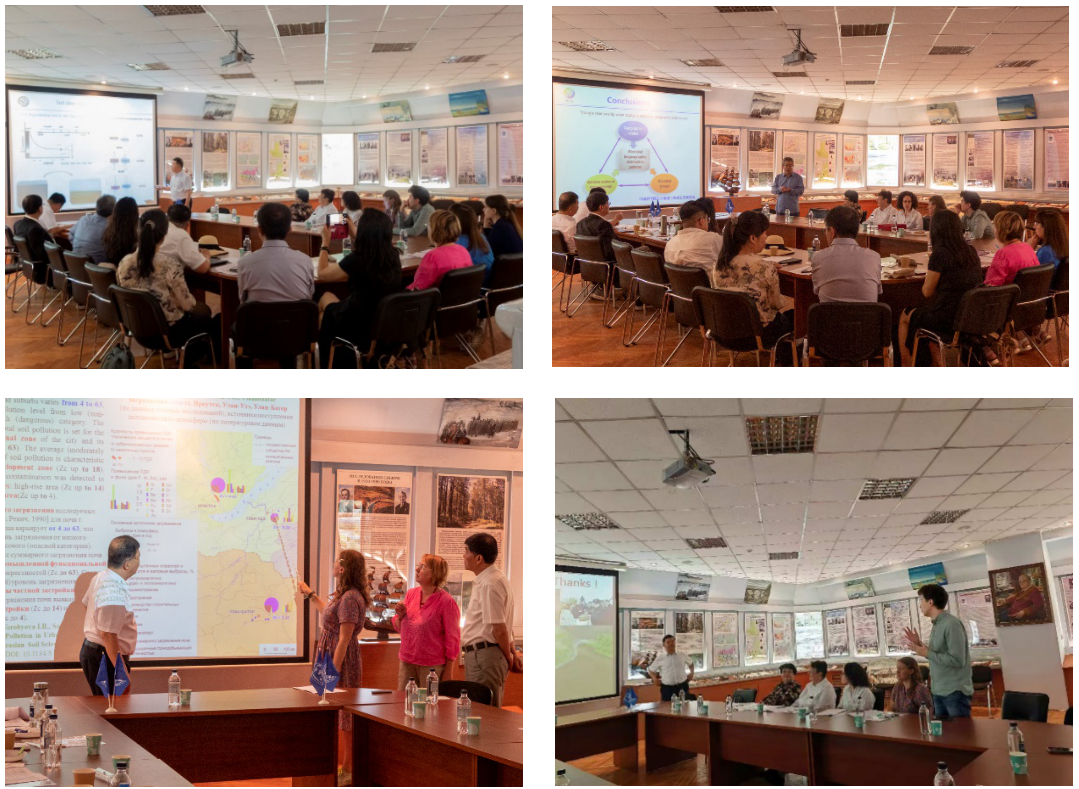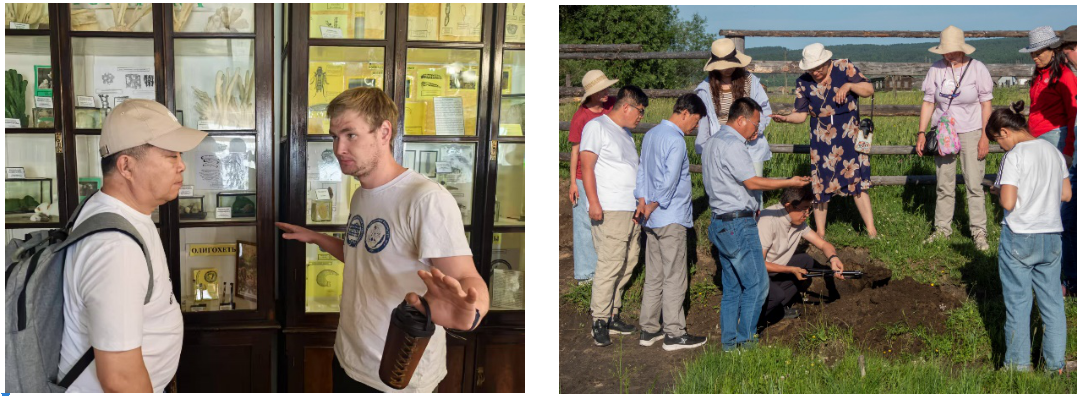From June 22 to 27, 2025, the ANSO-World Mollisols Association (WMA) held a series of academic activities in Irkutsk, Russia. To expand ANSO’s influence and extend WMA’s scientific collaboration with Russian scientists, Professor Xiaobing Liu, President of the ANSO-WMA, on behalf of WMA, signed a Memorandum of Understanding (MoU) with Dr. Andrey Anatolyevich Sorokov, Acting Director of the V.B. Sochava Institute of Geography, Siberian Branch of the Russian Academy of Sciences. This MoU formally integrates the V.B. Sochava Institute of Geography into the global cooperation framework of the ANSO-WMA.
The ANSO-WMA jointly organized the “Russia-China Workshop on Mollisols Distribution, Utilization, and Transformation” with the V.B. Sochava Institute of Geography of the Russian Academy of Sciences, the Northeast Institute of Geography and Agroecology of the Chinese Academy of Sciences, Northeast Agricultural University, Irkutsk State University, and the V.V. Dokuchaev Soil Science Institute. 13 experts from China and Russia gave presentations on Mollisol fertility and degradation, sustainable management and utilization, classification and quality assessment, as well as biogeographical distribution and their response to global climate change. Attendees discussed in-depth the formation mechanisms and classification criteria revision of Mollisol, high-precision resource surveys and digital mapping technologies of Mollisol, scientific management and efficient nutrient utilization models of organic amendments, microbial regulation mechanisms in Mollisol, theoretical frameworks for preventing degradation and enhancing Mollisol quality, and technical systems for sustainable Mollisol management.



The Chinese and Russian experts paid several field visits to the V.B. Sochava Institute of Geography’s observation research station and Irkutsk State University’s experimental base. The Russian counterparts, the station director and PIs of research teams, systematically presented their latest research findings, with particular emphasis on demonstrating the core technological systems for Mollisol conservation and sustainable utilization. The excursion members thoroughly inspected the experimental field plots and exchanged views on key technical parameters, experimental methodologies, and application prospects with local researchers, sparking lively academic discussions.

The ANSO-WMA will strengthen collaboration with Russian scientists and actively integrate into the high-quality development of the Belt and Road Initiative. The future cooperation will focus on three core areas: (1) degradation mechanisms of Mollisol organic matter and targeted improvement technologies, (2) intelligent survey and systematic management technologies for Mollisol gully erosion, and (3) conservation of farmland biodiversity and establishment of ecological regulation systems in Mollisol regions. These efforts could establish a new paradigm for international scientific cooperation in Mollisol conservation, providing robust technological support and solutions to ensure the sustainable utilization of global Mollisol resources.
This event was financially supported by the International Partnership Program of the Chinese Academy of Sciences, Mechanism and Control of World Mollisols Degradation (131323KYSB20210004), as well as the 2023 ANSO Network project (ANSO-PA-2020-12).





